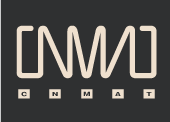Event
James FEI + Laetitia SONAMI
Sat, March 17, 2012, 4:00am
Saturday, March 17, 2012 - 04:00
General Price
$10.00
Student Price
$5.00

A look back at some items in our archives.
Batera: Drummer Agent with Style Learning and Interpolation. Rafael Valle and Adrian Freed
Ubiquitous in most DAWs and available in online versions, programmable drum step sequencers have been around since 1972, when Eko released the ComputeRhythm. In our previous research at CNMAT, these drum step sequencers have been expanded to include onset probabilities[1] and rhythmic expressivity [2].
Richard Andrews
CNMAT, UC Berkeley, 1750 Arch St., Berkeley, CA 94709
